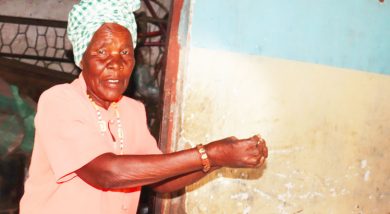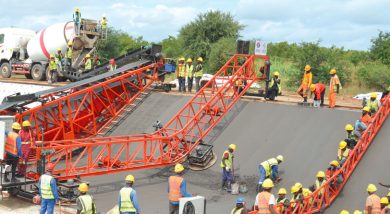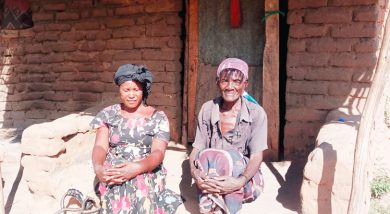A bank by your porch

In Chimbalanga, a small village in Malawi’s district of Zomba, a group of excited locals gather for their weekly bank n’khonde (bank by the porch) to discuss and decided on the financial transactions of the coming week. Since they do not have ready access to formal financial services, such as banks or microfinance institutions, they collectively support each other with saving money and offering loans at a local level. This support is part of their activities as a Village Savings and Loans (VSL) Group.
In 2018, Margaret Laudon, a wife and mother of two, started participating in WFP’s Food Assistance for Assets (FFA) Programme. The intervention eased her nightmares of food shortage and lack of money for other domestic needs. FFA participants build or maintain assets to improve their livelihoods, like restoring degraded land, developing veggie gardens, planting trees. These all create healthier natural environments, reduces the impacts of shocks and strengthens resilience to natural disasters. Participants received a cash transfer of USD 20 (MK 14,000) per month to meet their food needs. That same year, Margaret joined the VSL group after learning from other members in the community how the initiative changed their lives for the better.
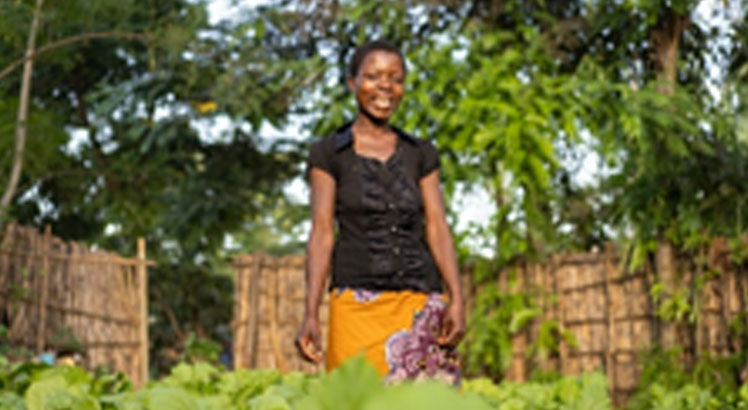
“The cash I received from FFA from the months of July to December eased the burden of sourcing food for the family. The money also addressed urgent needs at home other than purchasing food, including paying school fees for my children. Any savings we could make was reinvested in the Village Savings and Loans,” said Margaret.
She used part of her FFA entitlement as an initial investment in a VSL and has felt its direct impact on her life. “We have bought a water pump, which we use for irrigation farming. This brings extra income to the family. We also rent the water pump out as a source of additional income,” she adds.
The interest accrued from loans is shared out to all members at the end of the year according to their level of contribution to the total amount saved by the group. Village Savings and Loans Associations increase smallholder farmers’ ability to purchase food, agricultural inputs, invest in income-generating activities, cover the cost of education and health-related expenses, and diversify their livelihoods.
Alinafe Magwela, a wife and mother of three, also recounts how the money earned from her participation in a VSL has helped her open a small business and purchase a bike. “My husband has also managed to improve his fish selling business because he is now able to ride the bike to the lake Malawi to purchase dry fish”, she said. “The last loan I took from the VSL also help me buy seeds for irrigation farming. I am hoping to make a profit so the loan will be easily paid back.”
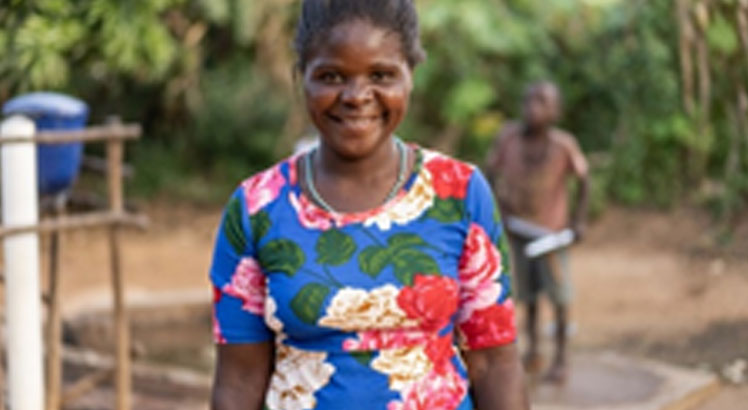
Alinafe family’s business is growing since she joined her VSL group. Photo: WFP/Badre Bahaji
The VSL has also helped Alinafe increase her sense of self-worth and empowered her. “Before, I hardly had anything, but my life and even my appearance has changed. I dress differently now and can buy myself nicer clothes,” she adds.
Promise received money from selling goats and reinvested it in a VSL. Photo: WFP/Badre Bahaji
Promise Kamwendo participates in a Village Savings and Loan (VSL) group and has used this opportunity to get small loans to buy seeds and fertilizer for her land. At the end of each year, she receives a payout from the group’s interests, which has allowed her to install a cement floor and iron roof on her house. She’s also opened a shop where people can buy small food and cleaning items.
Promise’s shop is providing a stable additional income to her family. Photo: WFP/Badre Bahaji
“I have been able to use the income from sale of goats and income from the shop to pay school fees for my children,” says Promise with a smile.
Village Savings and Loans Groups are a popular model because it is community-based, so any interest paid on loans goes back into the community. It is a simple model which makes it easily understandable and engaging with anyone regardless of their academic background. Under WFP’s intervention, while women form most of the current VSL groups, men have also been increasingly joining.
WFP’s livelihoods programme, with the support of its development partners (USA, United Kingdom, Germany, Flanders and Switzerland), aims to improve vulnerable people’s ability to adapt to climate change through various interventions. WFP focuses its resilience-building activities in eight priority districts (Balaka, Blantyre, Chikwawa, Machinga, Mangochi, Phalombe, Nsanje and Zomba).


